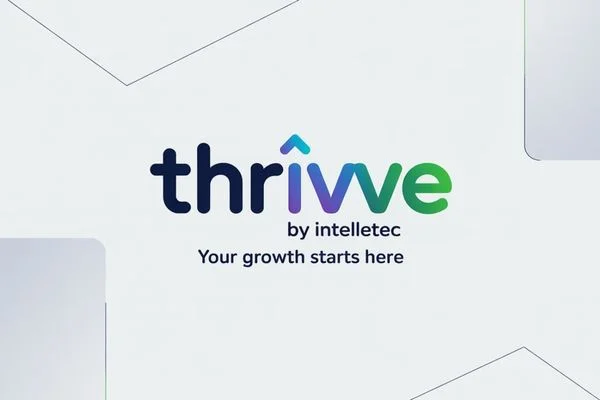Introduction about Technicalinterest.com
Let me ask you something: Have you ever spent hours watching tech reviews, debugging code, or figuring out why your smart home device won’t connect? If yes, congratulations – you’ve got technical interest, and it’s more valuable than you might think. ( Technicalinterest.com )
I remember my first encounter with technology. I was twelve, staring at my dad’s desktop computer, wondering how pressing keys could make images appear on screen. That simple curiosity led me down a rabbit hole that never really ended. And honestly? I’m glad it didn’t.
Technical interest isn’t just about being a “tech person.” It’s about having that itch to understand how things work, why they work, and how to make them work better. In today’s digital world, this curiosity isn’t just helpful – it’s practically essential.
What Exactly Is Technical Interest?
Technical interest is your natural desire to understand, explore, and work with technology and technical concepts. It’s not about being born with a special gene or having a computer science degree. It’s simpler than that.
Think of it as curiosity with a purpose. When your Wi-Fi stops working, do you just restart the router, or do you wonder why that fixes it? When you hear about AI, do you want to know what’s actually happening behind the scenes? That’s technical interest talking.
Here’s the thing most people get wrong: they think technical interest means you need to be a programmer or engineer. Not true. A graphic designer learning new software, a writer exploring content management systems, a small business owner setting up their website – they all have technical interest. It shows up differently for everyone.
The Different Faces of Technical Interest
Technical interest isn’t one-size-fits-all. It manifests in various ways depending on your personality, goals, and industry.
Types of Technical Interest
| Interest Type | What It Looks Like | Common Fields |
| Problem-Solving Focus | You love troubleshooting issues and finding solutions | IT Support, Engineering, System Administration |
| Creative Technical | Combining tech skills with creative output | Web Design, Digital Art, Game Development |
| Analytical Approach | Data-driven, loves patterns and optimization | Data Science, Analytics, Research |
| Building & Making | Hands-on creation of products or systems | Software Development, Robotics, Hardware |
| Learning & Sharing | Understanding tech to teach or explain to others | Technical Writing, Training, Content Creation |
I’ve met people with technical interest in the most unexpected places. A chef who optimized his kitchen workflow using IoT sensors. A teacher who built custom educational apps for her students. A photographer who dove deep into image processing algorithms. The common thread? They all wanted to understand the “why” and “how” behind their tools.
Why Technical Interest Matters More Than Ever
We’re living in a world where technology touches everything. Your career, relationships, health, entertainment – there’s a digital component to all of it. Having technical interest gives you an edge that goes beyond just job opportunities.
Real-World Benefits
Career Advancement: Companies desperately need people who understand technology. Even in non-tech roles, technical skills make you invaluable. Marketing professionals who understand analytics tools, salespeople who can navigate CRM systems, managers who grasp project management software – they all have a competitive advantage.
Problem-Solving Skills: Technical interest trains your brain differently. You learn to break down complex problems into manageable pieces. This skill transfers to every area of life. Budget planning? Breaking down a complex task? Figuring out why your relationships aren’t working? The systematic thinking you develop through technical interest applies everywhere.
Future-Proofing Your Career: Automation and AI are changing the job landscape. The people who’ll thrive aren’t necessarily the ones who can code, but those who understand technology enough to work alongside it. Technical interest keeps you adaptable.
Independence and Confidence: There’s power in not having to call tech support for every little issue. Understanding technology gives you control over your digital life. No more feeling helpless when something breaks or changes.
How to Develop Your Technical Interest
Here’s some good news: technical interest can be developed. You don’t need to be “naturally good at tech” (whatever that means). You just need curiosity and the right approach.
Start Where You Are
Don’t try to learn everything at once. That’s overwhelming and pointless. Instead, start with technology you already use.
- If you use smartphones: Explore settings you’ve never touched. Learn what each feature actually does. Try automation tools like Shortcuts (iOS) or Tasker (Android).
- If you work with computers: Go beyond the basics. Learn keyboard shortcuts. Understand file systems. Explore what’s actually happening when you save a document.
- If you’re on social media: Dig into how algorithms work. Understand why you see what you see. Learn about digital privacy.
The key is connecting technical learning to things you already care about. Love photography? Learn about image processing. Into fitness? Explore how fitness trackers work. Passionate about writing? Understand content management systems.
The Learning Path That Actually Works
| Stage | What to Do | Time Investment | Expected Outcome |
| Foundation | Learn basic concepts through everyday tech | 15-30 min daily | Comfortable with tech terminology and basic functions |
| Exploration | Try different areas to find what excites you | 1-2 hours weekly | Discover your specific technical interests |
| Deep Dive | Focus on one area, take courses or tutorials | 3-5 hours weekly | Develop practical skills in chosen area |
| Application | Build projects or solve real problems | Ongoing | Portfolio and real-world experience |
| Sharing | Teach others or contribute to communities | As desired | Solidify knowledge and build reputation |
I’ve seen people transform their technical skills in six months using this approach. The secret? Consistency over intensity. Thirty minutes daily beats a six-hour weekend binge every time.
Common Roadblocks (And How to Overcome Them)
Let’s be real – developing technical interest isn’t always smooth sailing. Here are the obstacles I see most often:
“I’m Too Old to Learn Tech”: This is the biggest myth in technology. I’ve taught people in their 60s and 70s who picked up programming, digital marketing, and data analysis. Your brain doesn’t stop learning. Ever. Age actually brings advantages – life experience helps you understand why technology matters and how to apply it practically.
“I Don’t Have a Technical Background”: Neither did most successful tech people when they started. Steve Jobs wasn’t an engineer. Many top developers were self-taught. Your “non-technical” background might actually be an advantage – you bring fresh perspectives and understand user needs better.
“Technology Changes Too Fast”: Yes, it does. But here’s the secret: fundamental concepts don’t change that fast. Learn the underlying principles, and you can adapt to new tools easily. It’s like learning to drive – once you understand the basics, switching cars isn’t hard.
“I Don’t Have Time”: You’re already spending time with technology. You’re just not being intentional about it. Instead of mindlessly scrolling, spend 20 minutes learning something. Replace one Netflix episode with a tutorial. You’d be amazed what compounds over time.
Best Resources for Building Technical Interest
The internet is overwhelming with resources. Here’s what actually works:
For Complete Beginners
- YouTube Channels: Start with channels that explain tech in simple terms. Linus Tech Tips for hardware, Fireship for quick programming concepts, NetworkChuck for networking basics.
- Interactive Platforms: Codecademy, Khan Academy, and freeCodeCamp offer hands-on learning without overwhelming theory.
- Podcasts: Listen while commuting. “Reply All” makes tech stories entertaining. “Syntax” discusses web development casually.
For Intermediate Learners
- Project-Based Learning: Build something real. A website, an app, a data analysis project. Learning by doing beats passive consumption every time.
- Technical Communities: Reddit’s learning subreddits, Discord servers, local meetups. Learning with others keeps you motivated and provides support.
- Documentation: Start reading official documentation for tools you use. It’s less boring than it sounds, and it’s how professionals actually learn.
Top Technology Websites to Follow
| Website | Best For | Why It Matters |
| TechCrunch | Tech industry news and startups | Stay updated on business and innovation trends |
| Stack Overflow | Programming Q&A and problem-solving | Real solutions from experienced developers |
| Ars Technica | In-depth technical analysis | Detailed explanations of how things work |
| MIT Technology Review | Emerging technologies and research | Understand future trends and implications |
| GitHub | Open-source projects and code | Learn from real code and contribute to projects |
| Medium (Tech Tags) | Diverse perspectives and tutorials | Personal experiences and practical guides |
| Dev.to | Developer community and articles | Beginner-friendly programming content |
Turning Interest Into Opportunity
Technical interest isn’t just about personal satisfaction – it opens doors professionally. Here’s how to leverage it:
Building Your Technical Profile
You don’t need certifications to prove technical interest (though they can help). What matters more is demonstrating what you can do:
- Create a Portfolio: Build things and show them off. GitHub for code, Behance for design, Medium for technical writing. Showing beats telling.
- Contribute to Open Source: Start small. Fix documentation typos, report bugs, suggest features. It’s resume gold and you learn from experienced developers.
- Write About What You Learn: Start a blog or share on LinkedIn. Teaching others solidifies your knowledge and builds your reputation.
- Network Strategically: Join tech communities, attend meetups (virtual or physical), engage in online discussions. Opportunities come from connections.
Making the Career Transition
If you’re looking to pivot into a more technical role, here’s the realistic path:
- Start in your current role: Find ways to apply technical skills where you are now. Automate repetitive tasks, build tools for your team, improve processes.
- Build visible projects: Create things people can see and use. Even simple projects demonstrate capability better than courses alone.
- Get a foot in the door: Entry-level technical roles, internships (yes, even career changers do them), or contract work build real experience.
- Never stop learning: Technology evolves constantly. The learning never ends, but that’s what makes it interesting.
The Future Belongs to the Technically Curious
Here’s what I believe: the next decade won’t just belong to engineers and programmers. It’ll belong to people who understand technology enough to collaborate with it, question it, and shape it.
You don’t need to build the next Facebook or create revolutionary AI. But understanding how these things work, why they matter, and how to use them effectively? That’s the new baseline for professional success.
Technical interest isn’t about becoming someone you’re not. It’s about expanding who you already are with powerful new tools and understanding. It’s about turning curiosity into capability.
Key Takeaways of Technicalinterest.com
- Technical interest is learnable curiosity about how technology works and can be applied
- It manifests differently for everyone – there’s no single “right way” to be technical
- Starting with familiar technology makes learning natural and sustainable
- Consistency matters more than intensity when building technical skills
- Your “non-technical” background is an advantage, not a limitation
- Practical projects demonstrate skills better than courses or certificates alone
- Technical understanding is becoming essential across all industries, not just tech
Read More Informative Articles Visit This Site: LuxeViewMag
Frequently Asked Questions
What is a technical interest?
Technical interest is your natural curiosity and desire to understand how technology and technical systems work. It’s not about having formal education or being a programmer – it’s about that itch to know the “why” and “how” behind the tools and tech you use. Whether you’re exploring how your smartphone works, learning a new software platform, or understanding AI basics, you’re exercising technical interest. It can be as simple as wanting to troubleshoot your own tech problems or as complex as building entire systems from scratch.
What is the No. 1 technology website?
There isn’t a single “number one” tech website because it depends on what you’re looking for. For breaking tech news, TechCrunch and The Verge lead the pack. For in-depth technical analysis, Ars Technica is exceptional. For developers, Stack Overflow is invaluable. If you’re into gadgets and reviews, CNET and Wired are solid choices. My honest recommendation? Follow 3-4 sites that match your interests rather than trying to find one perfect source. The tech world is too diverse for a single site to cover everything well.
Can I develop technical interest if I’m not naturally “tech-savvy”?
Absolutely! Technical interest isn’t an innate talent – it’s a skill you develop through curiosity and practice. The people you think are “naturally tech-savvy” simply started exploring earlier or had more opportunities. Start with technology you already use daily, take small steps, and focus on understanding one thing at a time. I’ve seen countless people who claimed they “weren’t tech people” become incredibly skilled once they found an approach that worked for them. Your so-called disadvantage might actually help you understand user perspectives better than lifelong tech enthusiasts.
How long does it take to become technically proficient?
This varies wildly based on your goals and what “proficient” means to you. For basic technical literacy (understanding common terms, troubleshooting everyday issues), you could get comfortable in 2-3 months with regular practice. For job-ready skills in a specific area like web development or data analysis, expect 6-12 months of focused learning. For deep expertise, it’s a continuous journey. The good news? You start seeing benefits immediately. Even small improvements in technical understanding make your daily life easier. Focus on progress, not perfection.
Do I need expensive courses or certifications to prove my technical interest?
No. While structured courses can be helpful, they’re not necessary, especially when starting. The internet is full of free, high-quality resources – YouTube tutorials, free coding platforms, documentation, and communities. What matters most is what you can demonstrate through projects and practical skills. Employers and clients care more about what you can do than what courses you’ve taken. That said, certifications can be valuable for specific career paths (cloud computing, cybersecurity, etc.) but start learning first, then decide if certification makes sense for your goals. Many successful tech professionals are entirely self-taught.
Is technical interest only relevant for tech careers?
Not at all! Technical interest benefits virtually every career in the modern world. Teachers who understand educational technology teach more effectively. Healthcare professionals who grasp medical software provide better care. Marketers who understand analytics drive better results. Writers who know content management systems work more efficiently. Even artists and creatives benefit from understanding the technical side of their tools. Technical interest isn’t about becoming a programmer – it’s about being more capable and independent in a technology-driven world, regardless of your field.




